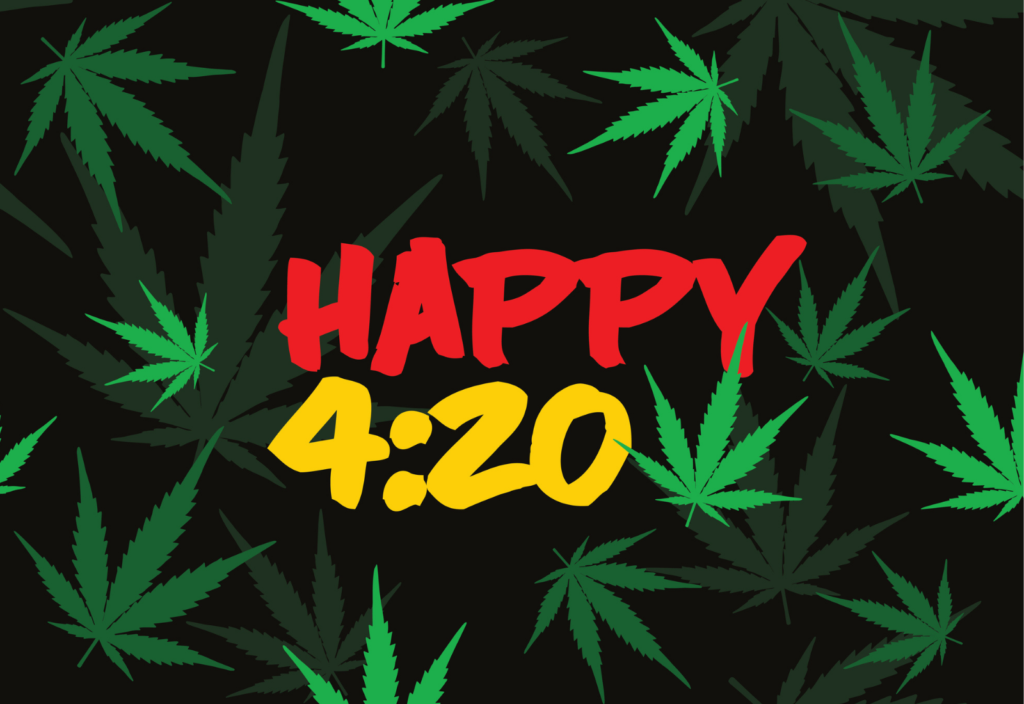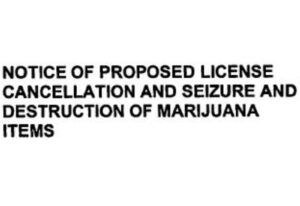Today is that hallowed cultural holiday for the cannabis industry, 4/20. Of all of the 4/20’s of the past, this one hits a little different (although 2015 was a nice year, too). We have seen so much political change in support of cannabis, including state-by-state legalization in the past year. We’ve also seen some fun, holiday-specific events– Colorado is awesomely auctioning off 4/20 festive license plates, and Adidas is having a 4/20 draw to be able to buy Towelie Superstars (yes, I registered for that drawing)).
Although you probably can’t gather in crowds to celebrate cannabis this year, here’s a list of the unique highlights to be thankful for this socially-distanced 4/20:
Democratic controlled Congress and White House
Unless you’ve been living under a rock, you know that the Dems are now in control of Congress and the White House, which means that cannabis should finally get a fair shake at legalization (at least according to Senate Majority Leader Chuck Schumer). While President Biden has never supported legalization, he seems to now be fine with medical cannabis, and the Democrats also seem to be pretty bullish on getting some kind of cannabis legalization through Congress before the 2022 midterms.
The MORE Act
The Marijuana Opportunity, Reinvestment and Expungement Act (the “MORE Act“) is a historic piece of legislation that might actually run the political gauntlet to make it through Congress. Last year, it passed the House but got shut down by the Republican-controlled Senate as we predicted.
Among other things, the 2019-2020 version of the MORE Act:
- completely removes cannabis from the federal Controlled Substances Act, decriminalizing/descheduling it altogether
- eliminates criminal penalties for everyone in the commercial chain of production, distribution, and sales (which would also mean that the banking access woes and draconian impact of IRC 280E would be over);
- expunges cannabis criminal records dating back to May 1, 1971; and
- implements a federal tax on cannabis products “manufactured in or imported into the United States . . . equal to 5 percent of the price for which sold.”
Importantly, while the 2019-2020 MORE Act empowers the Feds to engage in rulemaking for a federal regulatory framework, states would still be in control of licensing, oversight, and enforcement within their borders (very similar to alcohol).
Just last month, the chairman of the House Judiciary Committee, Chairman Jerrold Nadler, confirmed that he will reintroduce the MORE Act. If the Dems are truly serious about legalization, the 2021 version of the MORE Act is going to have a lot more detail and probably even some significant changes to ensure a comprehensive federal framework is put into place (and you can bet on it that certain private interests groups are going to be all over the lobbying on this legislation).
The SAFE Banking Act
Access to financial institutions for cannabis businesses has been so-so under the 2014 FinCEN guidelines. Those guidelines don’t do anything to change or improve federal banking laws that otherwise bar financial institutions from accepting cannabis dollars because of the Bank Secrecy Act and federal anti-money laundering laws.
As a result, for years the cannabis industry has cried out and lobbied for federal reform to allow cannabis businesses to just deposit their cash with banks and credit unions. Many legal experts and policy analysts now believe that, before we see a version of the MORE Act take full flight, we’ll see small, technical federal fixes to bring about the end of federal cannabis prohibition, and the Secure and Fair Enforcement Banking Act (the “SAFE Banking Act“) is one of those fixes.
In short, the SAFE Banking Act creates a safe harbor for banks and credit unions so they cannot be held liable or subject to federal forfeiture action for providing financial services to a cannabis-related business. The SAFE Banking Act has passed the House four times now with the fourth approval vote taking place yesterday. The hope is that now that Congress and the Executive are controlled by the Democrats that the SAFE Banking Act will easily (and swiftly) become law (at the same time, there could be various strategic reasons to only take parts of the SAFE Banking Act and put them into a broader legalization measure).
Attorney General Merrick Garland (sorta)
Under former President Donald Trump, we saw two lousy Attorney General picks. The first was notorious cannabis-hater Jeff Sessions, who ended up withdrawing all Department of Justice guidance on state-legal cannabis federal enforcement, and who left the DOJ with a single cannabis enforcement memo that just regurgitates the federal Controlled Substances Act. The second, Bill Barr, wasn’t so bad in that he basically deferred to the 2013 Cole Memo regarding federal enforcement in states with legal cannabis.
Under President Biden, Merrick Garland is the U.S. Attorney General. Without a doubt Garland is no Sessions and it sounds like he’ll end up being more like Barr where he won’t institute a Cole Memo 2.0, but he also won’t waste federal enforcement resources on state-legal cannabis.
Legislative support of statewide cannabis legalization
A great wave of change is that more states are legalizing cannabis via legislative action rather than waiting around for people’s initiatives at the ballot box. Already this year, New York, Virginia, and New Mexico legalized cannabis through their legislatures (if you’re interested in New York, be sure to check out our May 4th webinar, “Intro to the Marijuana Regulation and Taxation Act“). Believe or not, on this 4/20, there are only 3 states left that have no legal form of cannabis (and they’re the ones you’d expect–Idaho, Nebraska, and Kansas).
Happy 4/20, everyone!
























